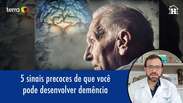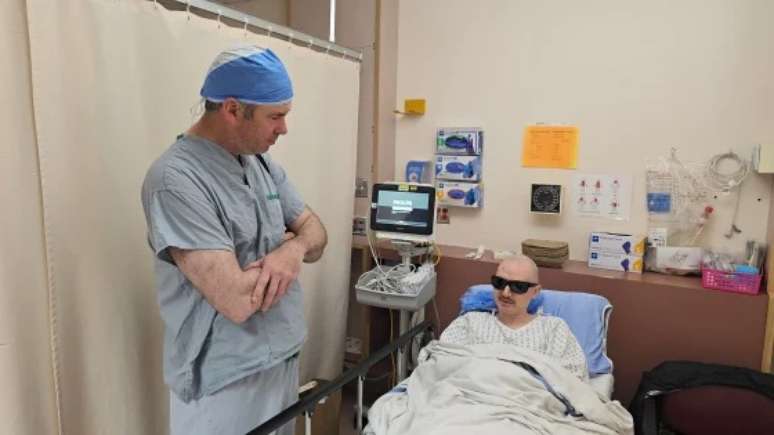The actress Isis Valverde declared on social media that she is celiac: understand what it is
Summary
Isis Valverde shared on social media the daily challenges related to her celiac disease, due to the restriction of gluten consumption. To diagnose it, blood tests and intestinal biopsy are performed, with treatments based on diet and permanent abstinence from gluten.
-
BY PARTICIPATING

Celiac disease: differences between gluten intolerance and wheat allergy
-
BY PARTICIPATING

How to train weapons at home: personal demonstration
-
BY PARTICIPATING

5 early signs you may be developing dementia
-
BY PARTICIPATING

5 signs someone is truly suicidal
Through a post on her social media, Isis Valverde shared with her followers one of the challenges she faces in her daily life. The actress, who has been diagnosed with celiac disease, revealed that she has to completely avoid gluten consumption due to the condition. She pointed out that this dietary restriction becomes especially complicated during her travels, where finding adequate food options can be an obstacle.
In the complex universe of adverse reactions to gluten, there are three main conditions that often cause confusion: celiac disease, gluten intolerance (also known as non-celiac gluten sensitivity), and wheat allergy.
Doctor Renata Domingues de Nóbrega, specialized in Nutrology, explains that each of these pathologies has its own characteristics, symptoms, diagnosis and treatment methods. Understanding the differences between them is essential for proper management and to ensure a better quality of life for those who suffer from these conditions.
Celiac disease: an autoimmune condition
Celiac disease is a chronic autoimmune condition in which ingestion of gluten – a protein found in wheat, barley and rye – causes an immune response that damages the villi of the small intestine.
This damage impairs nutrient absorption and can lead to a wide range of symptoms and complications, from digestive problems to malnutrition, osteoporosis and, in rare cases, some types of bowel cancer.
“Diagnosis involves blood tests to detect specific antibodies, followed by a biopsy of the small intestine. Treatment consists of a lifelong strict gluten-free diet, which allows the intestine to recover and the symptoms to subside,” explains Renata.
Gluten intolerance: sensitivity problem
Unlike celiac disease, gluten intolerance does not result in an autoimmune or allergic response. Individuals with this condition experience symptoms similar to those of celiac disease, such as abdominal pain, bloating, and diarrhea, after ingesting gluten, but without the immunological markers or intestinal damage associated with celiac disease.
The diagnosis is made by exclusion and treatment consists of reducing or eliminating gluten from the diet, depending on the severity of the symptoms.
Wheat allergy: an allergic reaction
Wheat allergy is an immune system reaction to wheat proteins, including but not limited to gluten. It is characterized by symptoms that can range from mild to severe, such as skin rashes, gastrointestinal and respiratory problems or, in extreme cases, anaphylaxis.
Diagnosis is made through skin or blood tests to identify specific IgE antibodies. Management of wheat allergy involves complete avoidance of wheat in all its forms, although, unlike celiac disease, individuals may be able to consume other grains that contain gluten.
Implications for health and quality of life
Renata Domingues de Nóbrega emphasizes that adopting an adequate diet is essential to manage these conditions. For people with celiac disease, a gluten-free diet is not an option but a lifelong necessity.
Those with a gluten intolerance may need to experiment to determine their gluten tolerance level, while people with a wheat allergy should avoid wheat but can tolerate other gluten-containing grains.
“Living with celiac disease, gluten intolerance or wheat allergy can be difficult, but with the correct diagnosis and proper management it is possible to lead a healthy and fulfilling life. Information is critical to understanding these conditions and promoting awareness among both patients and healthcare professionals. Seek medical advice if you suspect any of these conditions and do not self-diagnose based on general information,” concludes the doctor.
Watch the video with advice from Cláudio Mutti, a doctor specialized in Nutrology and Integrative Medicine.
inspires transformation in the world of work, in business, in society. Compass, a content and connection agency, is born.
Source: Terra
Ben Stock is a lifestyle journalist and author at Gossipify. He writes about topics such as health, wellness, travel, food and home decor. He provides practical advice and inspiration to improve well-being, keeps readers up to date with latest lifestyle news and trends, known for his engaging writing style, in-depth analysis and unique perspectives.





-vbbusmvvahx5.jpg)
![A more beautiful life in advance: Did Leah have committed incredible? What awaits you from the week of 1525 to September 19 [SPOILERS] A more beautiful life in advance: Did Leah have committed incredible? What awaits you from the week of 1525 to September 19 [SPOILERS]](https://fr.web.img3.acsta.net/img/4d/0d/4d0d6a7812fe28b06c8b297912288ea5.jpg)


